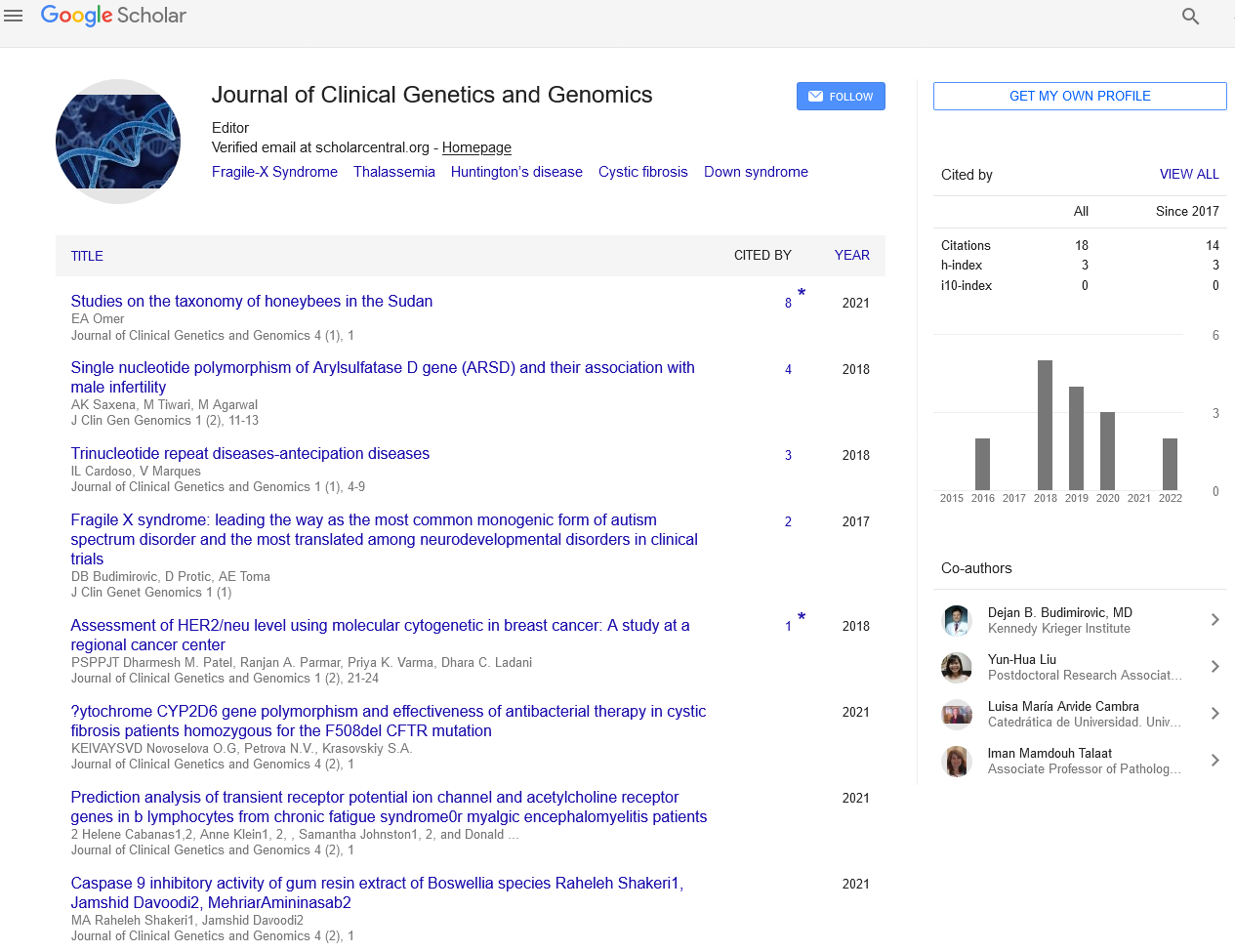Short note on cystic fibrosis
Received: 01-Dec-2021 Accepted Date: Dec 14, 2021; Published: 21-Dec-2021
Citation: Vajii B. Short note on cystic fibrosis. J Clin Gen Genomics 2021;4(4): 4.
This open-access article is distributed under the terms of the Creative Commons Attribution Non-Commercial License (CC BY-NC) (http://creativecommons.org/licenses/by-nc/4.0/), which permits reuse, distribution and reproduction of the article, provided that the original work is properly cited and the reuse is restricted to noncommercial purposes. For commercial reuse, contact reprints@pulsus.com
Description
Cystic fibrosis (CF) is a disease caused by a mutation in a protein in the body. Cystic fibrosis is caused by a defective protein that damages the cells, tissues, and glands that produce mucus and sweat in the body. Mucus protects the linings of the airways, digestive tract, and other organs and tissues by being slippery. Cystic fibrosis patients produce thick, sticky mucus that can pile up and cause blockages, damage, or infections in the organs involved. Organs such as the lungs and pancreas are also damaged by inflammation. Cystic fibrosis affects people differently. Some people have small or no symptoms, while others have severe symptoms or life-threatening problems. Symptoms of cystic fibrosis depend on which organs are affected and the severity of the condition.
Lung difficulties, also known as pulmonary or respiratory disorders, are the most significant and prevalent symptoms of cystic fibrosis, and can include deadly lung infections. People with cystic fibrosis have a hard difficulty absorbing nutrients from food, which makes it difficult to maintain a healthy diet. This is a problem that has the potential to stifle growth.
Causes
Mutations in the cystic fibrosis transmembrane conductance regulator (CFTR) gene cause cystic fibrosis, which is a hereditary condition. The CFTR gene gives the CFTR protein instructions. The CFTR protein can be found in all mucus-producing organs in the body, including the lungs, liver, pancreas, and intestines, as well as sweat glands. Other cells in the body, such as heart and immune system cells, have been identified to have the CFTR protein. The CFTR protein is faulty as a result of mutations in the CFTR gene. This results in mucus that is thick and sticky, as well as obstructions in the lungs and digestive tract.
Mucus coats tiny hair-like structures called cilia in your lungs' airways, which whisk the mucus particles up to your nose and mouth, where your body may expel them. This procedure does not work effectively in people with cystic fibrosis.
Symptoms
Cystic fibrosis symptoms vary depending on which organs are damaged and the severity of the disease. The majority of cystic fibrosis sufferers have obvious symptoms. Some people have few or no indications or symptoms, while others have severe symptoms or are in danger of dying. Symptoms may change over time as well. The lungs and pancreas are the most frequent cystic fibrosis consequences.
The lungs are the most common site of Cystic Fibrosis. Wheezing and a cough that produces mucus or blood are common symptoms of cystic fibrosis.
Other signs and symptoms depend on the organs affected and may include:
• Blockage of the intestine in a baby soon after birth
• Clubbing of fingers and toes due to less oxygen getting to the hands and feet
• Fever, which may include night sweats
• Gastrointestinal symptoms, such as severe abdominal pain, chronic diarrhea, or constipation
Treatment
While there is no cure for cystic fibrosis, treatment improvements are allowing sufferers to live longer, healthier lives. You or your kid will work with cystic fibrosis professionals to better manage your illness.
Treatment may begin until the diagnosis is established in neonates who have a positive screening result. Airway clearance, drugs to improve the function of the defective CFTR protein and prevent complications, and surgery, if necessary, are the mainstays of cystic fibrosis treatment.





